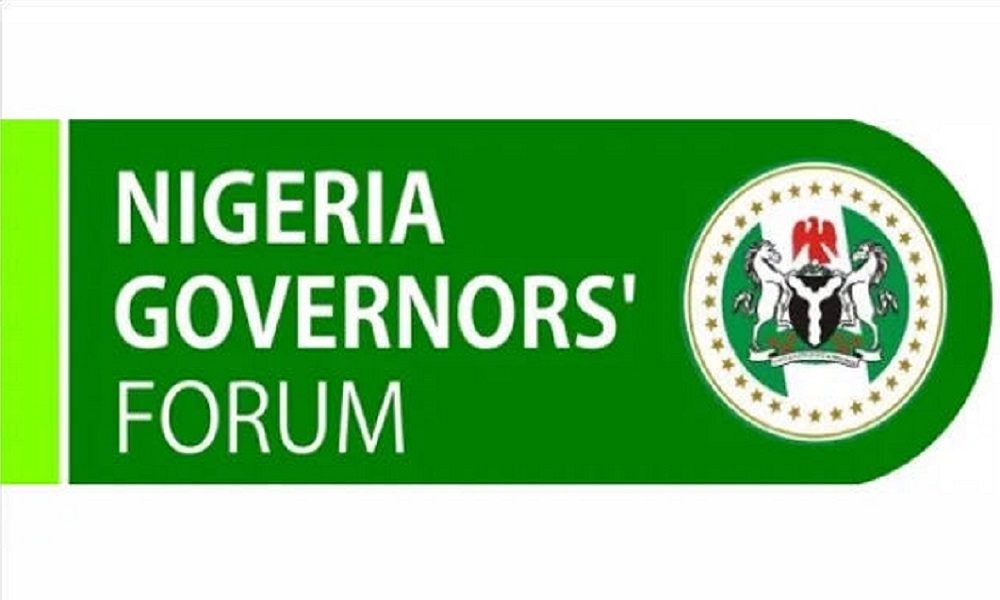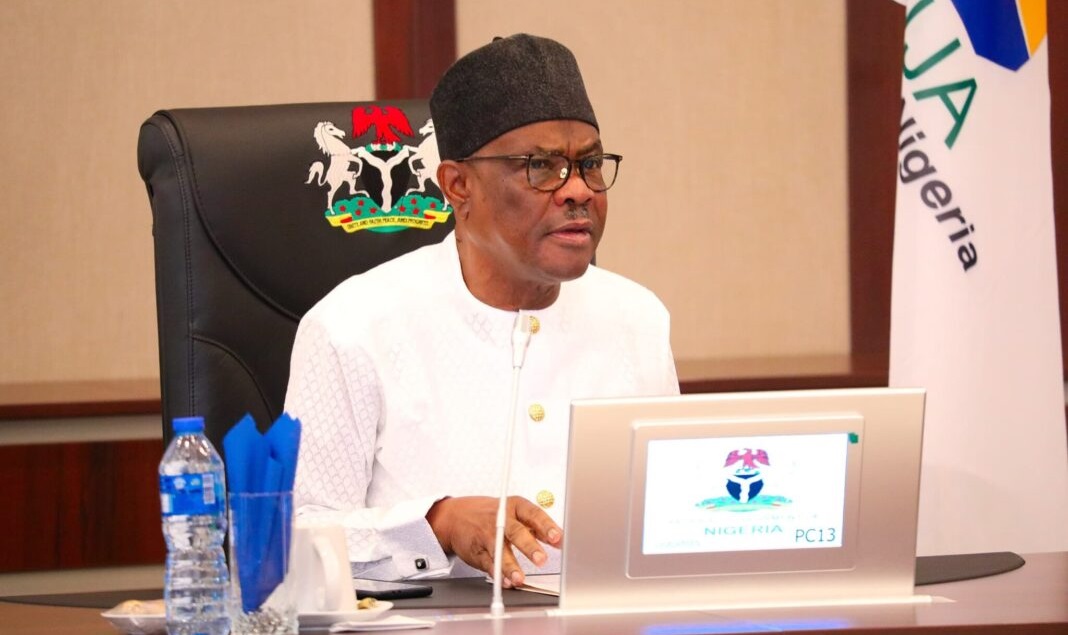News
Minimum wage: New minimum wage may push states into bankruptcy — NGF report

As the nation awaits the new minimum wage promised to be sent to the National Assembly by President Bola Tinubu, the burden of implementing the minimum wage may make many states bankrupt.
The Federal Executive Council, at its meeting last Tuesday, stepped down a memorandum on the report of the tripartite committee on the new minimum wage, to allow for more consultations among the federal and state governments on one part, the private sector and the labour unions on the other part.
Last Thursday, Tinubu met with the governors at the National Economic Council meeting chaired by Vice President Kashim Shettima. The meeting, which was expected to deliberate on the national minimum wage, was, however, silent on whether or not it considered the issue.
Also last Thursday, the Southern Governors’ Forum released the communiqué of its meeting held in Abeokuta, Ogun State, with the governors asking that each state should negotiate minimum wage with its workforce.
The labour unions have, however, reacted to the stance of the Ni¬geria Governors’ Forum over their overbearing influence on the minimum wage negotia¬tions.
In a document, titled, “Analysis of State FAAC inflows and state expenditure profile,” of the Nigeria Governors’ Forum Secretariat, the NGF report warned that implementing the new minimum wage could push states into bankruptcy due to increased recurrent expenditure.
According to the report, the burden of recurrent expenditure already left Abia, Ekiti, Gombe, Imo, Katsina, Kogi, Oyo, Plateau, Sokoto, Yobe, and Zamfara in deficit in 2022.
The report predicted that if the recurrent expenditure increased by 50 per cent, 13 states would fall into deficit, with only 10 remaining financially stable.
The tripartite committee’s recommendation of a N62,000 minimum wage would necessitate over a 100 per cent increase from the current N30,000, potentially leaving only a few states like Anambra, Bayelsa, Borno, Ebonyi, Gombe, Imo, Jigawa, Kaduna, Lagos, and Rivers with positive net revenues, based on the 2022 fiscal data.
A net revenue is the deduction of recurrent expenditure from the total revenue of the state. When it is positive, it means a surplus, but when negative, there is a deficit.
Also, the total revenue of states is calculated from the monthly revenue from the Federal Account Allocation Committee, internally generated revenue, aids and grants and constituency development funds.
According to the documents, with an employment size of about 58,631 workers, pays N5,837,899,980.40 as wage monthly. Anambra has a 20,541 employment size and pays N1,824,851,308.96 monthly as wages, apart from N894,480,399.62 as pension obligation and N579,694,680.33 for debt servicing.
Bayelsa boasts of 48,213 workforce, paying N5,802,435,178.58 monthly, with N1,194,528,784.40 as pension obligation and N3,535,787,992.48 as debt servicing, totalling N10,532,751,955.46 as total recurrent expenditure monthly.
Benue has about 13,366 workers in its workforce and pays N2,040,184,471.85 as monthly wage, N76,838,634.62 for pension, and N64,685,126,826.08 for debt servicing, totalling N66,802,149,932.56 monthly.
Delta has about 50,871 workers, offering N8,973,081,853.50 as wages, N1,499,886,303.39 as pension, and N72,417,433,139.00 as debt servicing, accumulating to N82,890,401,295.89 in a month.
Jigawa has about 44,831 workers in its employ and pays N2,795,662,113.02 as wages, and N345,987,843.12 as a pension, totalling N3,141,649,956.14 monthly on recurrent expenditure.
Katsina, Kwara and Niger have 19,062, 36,048 and 22,225 workers, with accumulated N139,294,944,565.27, N4,457,268,675.54 and N2,653,614,213.35 monthly recurrent expenditure respectively.
According to the document, Abia has a total recurrent expenditure of N111,983,979,958.62, against a total revenue of N147,637,730,867.73.
For Adamawa, the recurrent expenditure stands at N70,369,399,885.57, against a total revenue of N109,722,949,684.65, while Akwa Ibom boasts of a high revenue of N444,288,683,000, with recurrent expenditure of N235,144,539,000.
Of the states, Lagos has the highest total revenue, amassing N1,243,778,878,170 in 2022, with a recurrent expenditure of N621,043,036,000, followed by Delta, with N702,020,717,460.08 and a recurrent expenditure of N377,905,100,451.83.
Rivers amassed N525,588,159,714.88 in 2022, with recurrent expenditure of N186,974,715,774.87; Kaduna had a total revenue of N222,349,875,000 and expenditure of N95,987,999,472.10; Ogun, N297,249,009,626.83, recurrent expenditure of N178,519,010,628.42 and Oyo, with total revenue of N247,156,776,739.70 and recurrent expenditure of N152,077,804,384.65.
Kebbi State had the lowest total revenue in 2022, raking in N92,132,444,588.16 and spent N57,601,464,374.96 on recurrent expenditure, followed by Taraba, with a total revenue of N101,177,283,069.87 and recurrent expenditure of N75,055,201,412.62.
Aside from FAAC allocation, some states recorded poor IGR in the 2022 data compiled by the NGF Secretariat.
Zamfara State generated N6,513,960,477.20; followed by Kebbi, with N8,630,767,122.96; Taraba, N9,744,331,840.01 and Yobe State, with N9,940,554,642.00.
The IGR of Katsina (N12,821,119,042.64), Adamawa (N13,175,774,969.53), Niger (N14,427,373,136.00), Benue (N15,021,223,729.38), Plateau (N15,927,001,739.90) and Imo (N16,711,346,111.18) also showed a poor revenue standing.
The PUNCH reported on October 19, 2023, that 15 states have yet to implement the N30,000 minimum wage for their workers since it was signed into law in 2019.
According to BudgiT, though the 15 states were yet to implement the minimum wage of N30,000, the 36 states of the federation grew their cumulative personnel cost by 13.44 per cent to N1.75tn in 2022 from N1.54tn in 2021.
The civil society organization, in a release, ‘The States of States Report 2023,’ highlighted that the 36 states of the federation grew their revenue by 28.95 per cent from N5.12tn in 2021 to N6.6tn in 2022.
“Put together, the IGR of the 36 states appreciated by 12.98 per cent from N1.61tn in 2021 to N1.82tn in 2022, denoting a strengthened domestic revenue mobilisation capability.
“Nonetheless, the IGR to GDP ratio remained very low at 1.01 per cent. The increase in IGR did not reflect across the board as 17 states experienced a decline in their IGR from the previous year, while 19 states recorded positive growth,” BudgIT said.
The Assistant General Secretary of the NLC, Chris Onyeka, in an interview with the News Agency of Nigeria on minimum wage and its implementation, claimed that many state governors were flouting the Minimum Wage Act and listed the states of Abia, Enugu, Bayelsa, Delta, Nasarawa, Gombe, Adamawa, Niger, Sokoto, Imo, Anambra, Taraba, Benue, and Zamfara as defaulting.
Reacting, the Enugu State chairman of TUC, Ben Asogwa, said the state commenced payment of N30,000 minimum wage and its consequential adjustment in February 2020 for state government workers, while local government workers and primary school teachers were paid 25 per cent consequential adjustment.
He, however, said Governor Peter Mbah, on assumption of office, approved the full implementation of the N30,000 minimum wage for both the LG workers and primary school teachers in the state.
The Zamfara State Governor, Dauda Lawal, announced during a meeting with the leadership of the labour unions that the state would begin payment of N30,000 minimum wage effective June 2024.
News
UK unions slam Govt’s decision to end care worker visas

Labour unions and stakeholders in the United Kingdom’s care sector have come out strongly against the government’s move to stop the recruitment of foreign care workers, describing it as a reckless policy that could cripple the already struggling industry.
According to The Guardian UK, the UK government is set to publish a new immigration white paper on Monday, which includes plans to ban the recruitment of care workers from abroad.
This move is part of broader efforts by the government to cut down on legal migration and shift focus to local labour.
The announcement has drawn sharp criticism from unions and industry leaders, who argue that the care sector — already battling manpower shortages and funding challenges — heavily depends on foreign workers to function.
Reacting to the development, Professor Martin Green, CEO of Care England, lamented that the government’s decision amounts to “kicking the sector while it’s already down.”
For years now, we’ve been surviving on limited resources, rising operational costs, and serious staffing gaps,” Green said. “International recruitment may not have solved all the problems, but it provided a much-needed lifeline.
Taking that away now without offering any support or alternative is simply heartless.”
The UK’s largest trade union, Unison, also condemned the policy and demanded immediate clarification on the fate of foreign care workers already in the country.
Unison General Secretary, Christina McAnea, noted that the UK’s healthcare and social care systems would have collapsed without the input of migrant workers.
“Thousands of migrant health and care workers have kept things running. Now, they are left confused and anxious about their future. The government needs to assure them they’ll not be kicked out,” she stated.
McAnea also criticised the government for tagging care roles as “low-skilled”, insisting that the sector deserves better pay and recognition.
Figures show that in 2023 alone, over 58,000 foreign care workers entered the UK through the skilled worker visa route — accounting for nearly half of new entrants into the care workforce.
Meanwhile, the Labour government has defended the decision, describing it as part of a reset of the immigration system designed to reduce dependency on foreign labour and invest in British workers.
Home Secretary Yvette Cooper, speaking during a BBC interview, insisted that there are still untapped pools of labour within the UK.
“Employers should be looking to hire from those already in the UK, including people on existing visas who are yet to be deployed,” she said. “There’s also room to extend some visas, but we believe it’s time to draw the curtain on recruiting new care workers from abroad.”
The policy continues to stir debate across the UK, with fears that it could worsen the staffing crisis in the care sector and increase pressure on families already struggling to access quality care services.
News
Go home to face corruption probe, protesters in London tell Kyari (Photos)

…as Nigerians submit letters to UK Home Office, High Commission
Hundreds of Nigerians stormed the Nigerian High Commission and the UK Home Office in London on Monday, May 12, 2025, demanding that ex-NNPCL boss Mele Kyari be deported to Nigeria to face corruption investigations.
The demonstrators, under the banner of Rescue Nigeria Now, gathered outside the Nigerian High Commission and the UK Home Office, submitting formal petitions to both institutions.
Protesters carried placards with bold inscriptions such as “Withdraw Mele Kyari’s residency now!”, “Mele Kyari go home and face EFCC now!”, and “London is not for public officials who abused public trust.”
They accused Kyari of fleeing Nigeria to evade accountability for alleged financial misconduct during his tenure at NNPCL from 2019 to 2025.
In a letter addressed to the Nigerian High Commissioner to the United Kingdom, the group said: “We are profoundly disillusioned and appalled by the effrontery with which Mr. Kyari has been walking in the street of London with impunity, while the tables of the Economic and Financial Crimes Commission (EFCC) and other anti-corruption agencies in Nigeria are flooded with so much petitions, audit queries, and evidences on the many alleged corrupt financial dealings and infraction that have been attached to his tenure which spanned from 2019 to 2025.”
“We see this as an affront to the people of Nigeria and an insult to the esteemed anti-corruption crusade of the Federal Republic of Nigeria, that an individual of such notoriety whose tenure in NNPCL was marred by unprecedented corruption and international embarrassment should not be allowed to roam freely on British soil without facing the consequences of his actions.
“Your Excellency, this letter is not merely a petition—it is a demand— A moral, civic, and nationalistic demand. We, therefore, demand in the strongest terms that the Nigerian High Commission in the United Kingdom refrains from according him any form of official reception, recognition, or diplomatic courtesy until he returns to Nigeria to submit himself to the Economic and Financial Crimes Commission (EFCC) and other relevant investigative bodies for the myriad allegations that trail his tenure.”
The petition detailed several allegations against Kyari, including the misappropriation of funds earmarked for refinery rehabilitation.
“It is on record till date that billions of dollars that were ostensibly budgeted for the rehabilitation of Nigeria’s decrepit refineries in Warri, Kaduna and Port Harcourt just unaccountably vanished into a bureaucratic abyss under the leadership of Mr. Kyari. While the nation was waiting expectantly for positive results, it was unfortunate that no tangible infrastructural improvement or reasonable output has been recorded as a justification to the gargantuan expenditures being made. Instead, Nigeria, a country known as the largest oil producer in Africa , continued importing refined petroleum products while its refineries remained moribund, mothballed, and perfunctorily maintained, further weakening the Nigeria naira,” the letter reads.
“At present, the forensic opacity that surrounded these rehabilitation contracts which have collectively impoverished the nation and eroded public trust in governance has been a point of convergence and sensitivity to several anti-corruption watchdogs and international observers who have described the NNPCL under Kyari as an Impenetrable black box.
Moreover, it was alleged that Mele Kyari was running a syndicate of racketeers who were massively benefiting from the fuel importation operations at the detriment of the nation’s wealth.
“Under Kyari’s leadership, the controversial fuel subsidy regime mysteriously shrouded in confusion, crony capitalism, and unexplainable contradictions. opaque subsidy payments of over trillions of naira were disburses under the pretext of cushioning fuel costs. Yet, these payments lacked empirical substantiation and transparency on how it was spent. In demanding accountability, figures contradicted themselves, audits were ignored, and most damningly of this theatrics is that ordinary Nigerians were the ones that continued to suffer from the effects of fluctuating pump prices, artificial scarcity being created from his recklessness, and the nationwide persistent fuel queues that hit the country— a phenomenon that outrightly became emblematic of governance failure.
“Subsidy removal, though a visionary idea by President Bola Ahmed Tinubu, however became an ideological tool of deceit, not policy relief under Kyari’s watch. The EFCC has reportedly received whistleblower testimonies and documents alleging fraudulent invoicing, overblown subsidy claims, and clandestine offshore payments.”
Addressing the UK Home Office, Rescue Nigeria Now emphasized the international implications of harboring individuals accused of corruption.
The letters further alleged that Kyari transferred illicit funds to UK bank accounts.
“We are aware that Mr. Kyari is currently residing in the United Kingdom, a development he carefully orchestrated to evade facing justice in Nigeria for numerous acts of corruption and shady dealings that took place during his tenure,” the letter added.
“We have cause to believe that for Mr. Kyari to have fled to the United Kingdom, he has transferred parts of the proceeds of his crimes to bank accounts in London, which would be a violation of anti-money laundering legislation in your country.”
The coalition called upon the UK authorities to act in accordance with international anti-corruption agreements.
“The United Kingdom and Nigeria have established reciprocal treaties and agreements to curtail their citizens from willfully engaging in corruption and other criminal activities. This relationship is intended to ensure that justice is served and that fugitive criminals do not find safe havens in foreign countries.
“Considering the extensive evidence of corruption and the severe impact on Nigeria, we hereby request that the Home Office expel Mr. Mele Kyari so that he can return to Nigeria. It is imperative that he faces justice for his actions and that the stolen funds are recovered to aid in the nation’s recovery and development.”
The protest and petitions underscore the growing demand among Nigerians, both at home and abroad, for transparency and accountability in public service.
As the EFCC continues its investigations into the alleged misconduct during Kyari’s tenure, the international community’s response remains to be seen.
News
Just in: Wike admits Fubara alongside 2 govs visited him on reconciliatory moves

The Minister of the Federal Capital Territory (FCT), Nyesom Wike, has admitted that suspended Governor Siminalayi Fubara of Rivers State is making reconcilliatory moves and had visited, alongside two other governors visited him.
Wike the immediate past governor of Rivers State, said this on Monday following reports that Fubara, who was suspended earlier in the year, visited the FCT minister.
Yes, he visited,” Wike said during a media parley with select journalists in Abuja.
-

 News15 hours ago
News15 hours agoWho Is Usoro Akpabio? Tinubu’s New MD for South-South Development Commission
-

 News7 hours ago
News7 hours agoJust in: Wike admits Fubara alongside 2 govs visited him on reconciliatory moves
-

 Politics15 hours ago
Politics15 hours agoJust in: PDP leaders plan to grab power as govs, ex-govs meet
-

 Politics16 hours ago
Politics16 hours agoWatch moment Wike arrives for PDP meeting (Video)
-

 News11 hours ago
News11 hours agoRivers crisis: Wike’s aide mocks Fubara, advises him to honourably quit since his spirit has left Brick House
-

 News16 hours ago
News16 hours agoTrue confession: “I’m not keen to return to office my spirit has left Brick House-Fubara
-

 Economy9 hours ago
Economy9 hours agoSEE Black Market Dollar (USD) To Naira (NGN) Exchange Rate Today 12th May 2025
-

 News15 hours ago
News15 hours agoSAD! Finally, see photos, identity of army captain killed by Boko Haram







